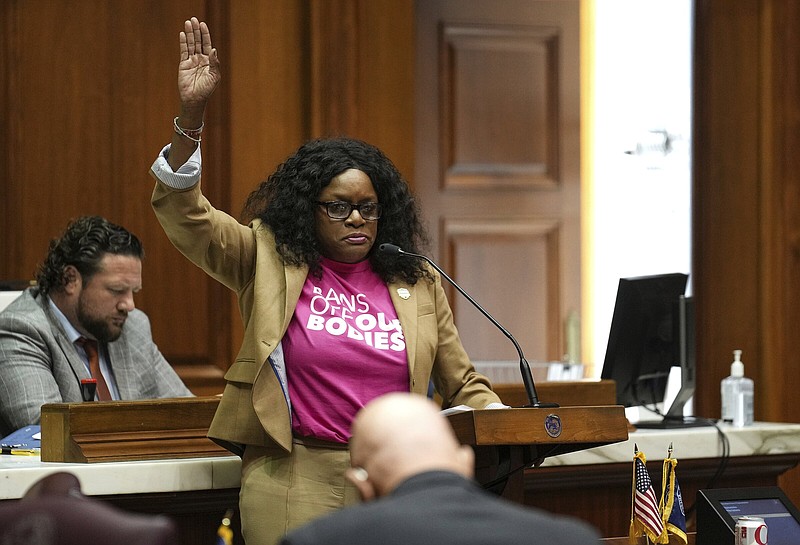INDIANAPOLIS --Indiana on Friday became the first state in the nation to approve abortion restrictions since the U.S. Supreme Court overturned Roe v. Wade, as the Republican governor quickly signed a near-total ban on the procedure shortly after lawmakers approved it.
The ban, which takes effect Sept. 15, includes some exceptions. Abortions would be permitted in cases of rape and incest, before 10-weeks post-fertilization; to protect the life and physical health of the mother; and if a fetus is diagnosed with a lethal anomaly. Victims of rape and incest would not be required to sign a notarized affidavit attesting to an attack, as previously proposed in the Senate.
Under the bill, abortions can be performed only in hospitals or outpatient centers owned by hospitals, meaning all abortion clinics would lose their licenses. A doctor who performs an illegal abortion or fails to file required reports must also lose their medical license -- wording that tightens current Indiana law that says a doctor "may" lose their license.
"I am personally most proud of each Hoosier who came forward to courageously share their views in a debate that is unlikely to cease any time soon," Gov. Eric Holcomb said in the statement announcing that he had signed the measure. "For my part as your governor, I will continue to keep an open ear."
His approval came after the Indiana Senate approved the ban 28-19 and the House members advanced it 62-38.
Indiana was among the earliest Republican-run state legislatures to debate tighter abortion laws after the Supreme Court ruling in June that removed constitutional protections for the procedure. It is the first state to pass a ban through both chambers, after West Virginia lawmakers on July 29 passed up the chance to be that state.
Republican Rep. Wendy McNamara of Evansville, who sponsored the bill, told reporters after the vote that the legislation "makes Indiana one of the most pro-life states in the nation."
Outside the House chamber, abortion-rights activists often chanted over lawmakers' remarks, carrying signs like "Roe, roe, roe, your vote" and "Build this wall" between church and state. Some House Democrats wore blazers over pink "Bans Off Our Bodies" T-shirts.
The House added exceptions for protecting the health and life of the mother after repeated requests from doctors and others. It also allows abortions if a fetus is diagnosed with a lethal anomaly.
House and Senate legislators listened to hours of testimony over the past two weeks in which residents on all sides of the issue rarely, if ever, supported the legislation. Abortion-rights supporters said the bill goes too far, while anti-abortion activists expressed it doesn't go far enough.
Indiana House Speaker Todd Huston told reporters that if residents are unhappy, they can vote for new lawmakers.
Indiana's proposed ban also came after news of a 10-year-old rape victim who traveled to the state from Ohio to end her pregnancy. The case gained attention when an Indianapolis doctor said the child came to Indiana because of Ohio's "fetal heartbeat" ban.
Democratic Rep. Maureen Bauer spoke tearfully before Friday's vote about people in her South Bend district who oppose the bill -- the husbands standing behind their wives, the fathers supporting their daughters -- as well as the women "who are demanding that we are seen as equal."
Bauer's comments were followed by raucous cheers from protesters in the hallway and subdued applause from fellow Democrats.
"You may not have thought that these women would show up," Bauer said. "Maybe you thought we wouldn't be paying attention."
Last week, West Virginia legislators passed up the chance to be the first state with a unified ban after its House of Delegates refused to concur with Senate amendments that removed criminal penalties for physicians who perform illegal abortions. Delegates instead asked for a conference committee to consider the details between the bills.
The debates come as Republicans face party divisions and Democrats see a possible election-year boost.
Religion was a persistent theme during the special session, both in residents' testimony and lawmakers' comments.
In advocating against the bill, Rep. Ann Vermilion condemned her fellow Republicans calling women who obtained abortions "murderers."
"I think that the Lord's promise is for grace and kindness," she said. "He would not be jumping to condemn these women."
